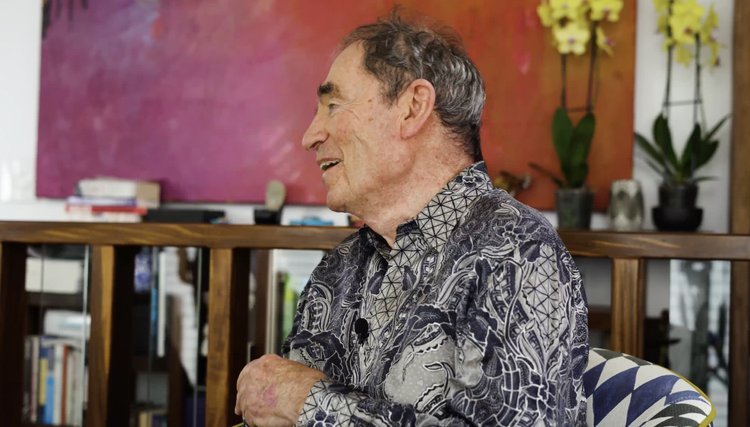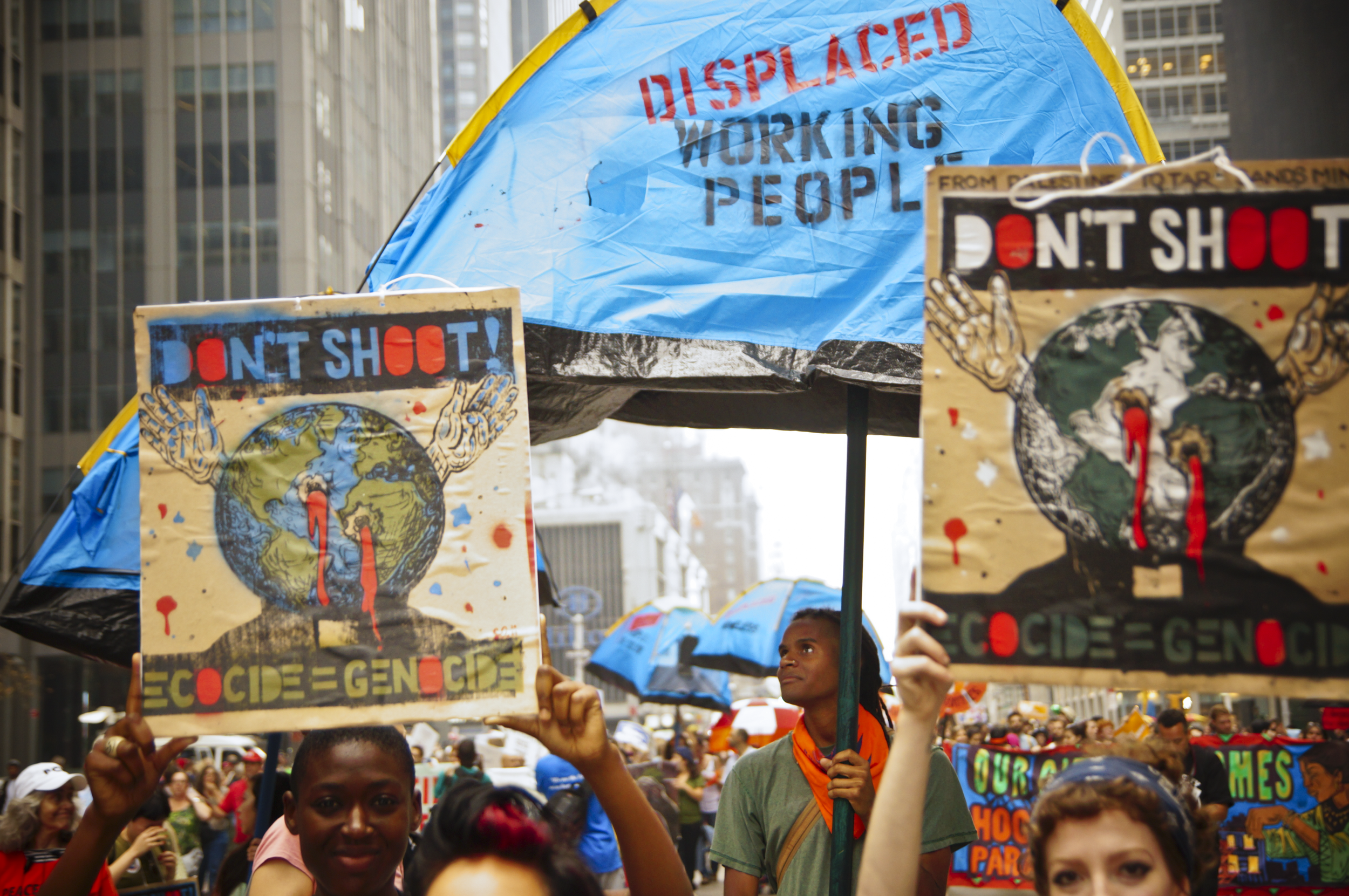
Our Blog
Categories
- Africa
- African Union
- Central Africa
- Citizenship laws
- Competion Law
- Constitutional Court
- Constitutional Law
- Constitutional law
- Disability rights
- East Africa
- Environmental Law
- Governance
- Human Rights
- Immigration Laws
- International Law
- Kenya
- Mining Law
- Nigeria
- North Africa
- Political Rights
- Public Law
- Right to Vote
- SADC Region
- South Africa
- Southern Africa
- Uganda
- West Africa
- Zambia
Constitutional Conversations with Justice Sachs - Episode 2
Following his retirement from the Constitutional Court, Justice Sachs penned an award-winning book detailing his experiences on the Bench. In Episode 2 of our interview, he explains the inspiration behind this thought-provoking read and what he hopes readers will take from it.
Uganda’s Anti-Homosexuality Bill and the Demise of the Rule of Law
Recently, the Parliament of Uganda passed the Anti-Homosexuality Bill (AHB) with the objective of establishing, amongst other things, “comprehensive and enhanced legislation to protect the traditional family by strengthening the nation’s capacity to deal with emerging internal and external threats to the traditional heterosexual family.” In this article, Dr. Sylvie Namwase argues that the continued cycle of human rights violations in Uganda falls within the broader context of authoritarian control, and will soon affect other minority groups.
Will Asylum-seekers and Refugees in Rwanda be Mistreated?Lessons from Rwandan Law, Policy, and Practice Today
Last year the United Kingdom engaged in talks with Rwanda over the two nations’ migration and economic development partnership ( Rwanda asylum plan ). In this article, Dr. D’orsi gives an overview of Rwanda’s position concerning the UK’s plan to deport some asylum seekers to its country. In addition, he assesses Rwanda’s asylum system to determine how safe it is for asylum seekers.
The Termination of the Zimbabwean Exemption Permit: A Direct Violation of the Principle of Non-refoulment?
Last year, the South African Minister of Home Affairs, Dr. Aaron Motswaledi announced the termination of the Zimbabwean Special Permits (ZEPs) set to expire at the end of 2021. Thato Gaffane argues that this decision is a violation of the international principle of non-refoulment and also, fatally flawed in as far as it lacks consideration for section 33 of the Constitution of the Republic of South Africa.
Solving Environmental Harms through an African Model of Environmental Justice
Africa faces a variety of developmental woes that have resulted in various injustices, including environmental injustice. Stephen Morgan discusses the importance of recognising this injustice and makes a case for a reorientation of what we assume to be our moral responsibility towards the environment using indigenous African values and practices.
A children's rights approach to the climate crisis in Africa
Climate change has created a children’s rights crisis which disproportionately affects children on the African continent. Bryony Fox discusses this issue and argues that it is time for a comprehensive children's rights approach to climate change impacts in Africa.
Reconsidering the Rights and Responsibilities of the Corporate Person
Corporations increasingly enjoy more rights but face fewer consequences for abusing rights. Erika George argues that a new approach is urgently needed and that constitutional courts should be more concerned with the concentrated power of the private sector and protecting the public space for effective policy making and adjudication.
Constitutionalism in the Era of Private Power and the Fourth Industrial Revolution
In the course of digitalisation, economic and other activities are increasingly internationalising and their challenges can thus be less frequently addressed through state constitutions. Although there is no constitutional framework that would allow private power to be effectively constrained at the international level, Johannes Masing argues that a certain uniting basis of constitutionalism across borders may be found in human rights.
Povertyism is a Major Obstacle to the Eradication of Poverty. It’s Time to Ban it.
United Nations Special Rapporteur, Olivier De Schutter calls for an end to ‘povertyism’ - the discrimination & negative attitudes that bar people in poverty from fully accessing their rights and for states to include socio-economic status as a suspect ground in national anti-discrimination frameworks.
Bwanya v Master of the High Court: Right for the Wrong Reasons
Bwanya v Master of the High Court was the first occasion on which the Constitutional Court expressly refused to follow one of its previous decisions. Joshua Davis considers the basis on which it did so and the implications for the doctrine of precedent, and argues that the judgment was ultimately right for the wrong reasons.
Population Displacement and Genocidal Violence in an Age of Climate Change
Climate change and the related crime of ecocide have increasingly been the focus of academic and public attention. As once stable weather patterns become more unpredictable and previously rare weather events become more common and more extreme, we are belatedly recognizing that the ecological destruction inflicted on the world around us poses a tremendous threat to not just the natural world, but to humanity as well.
The Parallel Play of Liberty and Subsistence
Amita Dhanda, a plenary speaker at the World Congress of Constitutional Law reflects on the connection between the rights of liberty and subsistence in light of developments in Indian criminal law.
Several reflections on the displacement in the Sahel due to climate change
Environmental degradation has become a serious problem in the Sahel, which is disproportionately impacted by climate change, with temperatures rising 1.5 times faster than the global average, and the situation is further aggravated by political instability. It is, therefore, consequential that this entire situation has produced – and is producing – a massive displacement of populations within the region.
Des objets aux sujets de propriété : Réflexion sur le décalage entre la reconnaissance juridique et sociale des droits des femmes à la propriété foncière en Afrique
Tanveer Rashid Jeewa affirme que ce traitement inhumain vient souvent du fait que les femmes n'ont pas de terre à leur nom et par conséquent, pas de sécurité d'occupation, de logement ou de sécurité économique.
From objects to subjects of property: Reflecting on the gap between legal and social recognition of women’s rights to land ownership in Africa
Women in Africa are often excluded from inheriting, evicted from their lands and homes by in-laws, stripped of their possessions, and have no choice but to engage in risky and non-consensual sexual practices in order to keep their property. Tanveer Rashid Jeewa argues that this inhumane treatment often comes as a result of women having no land to their name and consequently, no security of tenure, shelter or economic security.
- BBI judgment
- Children's rights
- Climate Change
- Constitutional Law
- Constitutional reform
- Democracy
- Election series
- Elections
- Environmental Justice
- Equality
- Ghana
- Human Rights
- International Law
- Judicial independence
- Kenya
- LGBTQ+ Rights
- Migrants
- Migration
- Namibia
- Nigeria
- Political Rights
- Public participation
- Refugee and migration series
- Refugees
- South Africa
- South African Constitution
- Women in Africa
- Women's Month
- Women's rights
- World Congress
Submissions
We welcome unsolicited submissions covering current legal developments in constitutional law, fundamental rights law, public law, international law and related fields.















